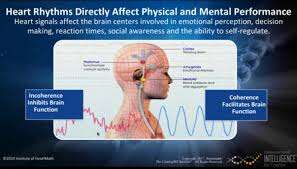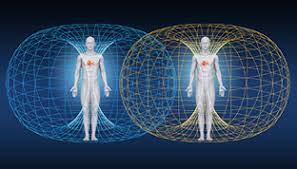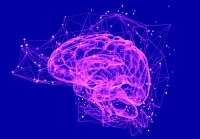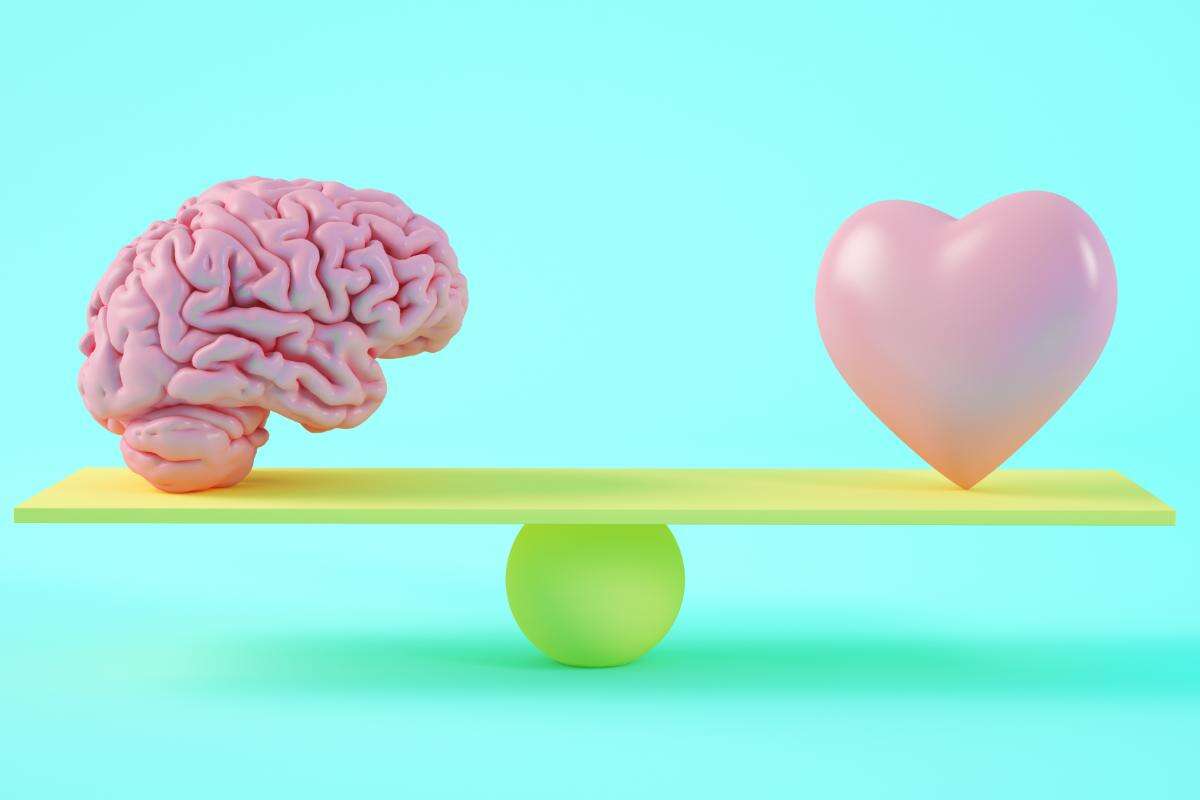Heart coherence is a term that has been gaining attention in recent years. It refers to a state where the heart, mind, and emotions are in sync and working together in harmony. This state is associated with a number of health benefits, including reduced stress, improved mental clarity, and increased resilience.
Heart coherence is often achieved through techniques such as meditation, deep breathing, or biofeedback. These practices help individuals regulate their heart rate variability, which is the variation in time between heartbeats. When heart rate variability is high and consistent, it indicates a state of coherence. This state is associated with improved physiological functioning, including better immune system functioning and lower levels of inflammation.
Overall, heart coherence is an important concept for anyone interested in improving their health and well-being. By learning to regulate our heart rate variability and achieve a state of coherence, we can experience a range of physical, mental, and emotional benefits.
Understanding Heart Coherence

It’s a state of synchronization between the heart and the brain, where the heart rate variability becomes more coherent and rhythmic. This state is associated with positive emotions, improved cognitive function, and better health outcomes.
The concept of heart coherence is based on the understanding that the heart is not just a pump but also an intelligent organ that communicates with the brain and the rest of the body. The heart generates a powerful electromagnetic field that can be measured several feet away from the body. This field is influenced by our emotions, thoughts, and behaviors, and it can also influence our physiology and the environment around us.
Heart coherence can be measured using a device called Heart Rate Variability (HRV) monitor, which measures the time interval between heartbeats. A more coherent HRV pattern indicates a more relaxed and balanced state of the autonomic nervous system, which is responsible for regulating the body’s internal functions.
Several techniques can help induce heart coherence, including deep breathing, meditation, biofeedback, and positive emotions. These techniques can help reduce stress, improve emotional regulation, increase resilience, and enhance overall well-being.
In summary, there is a state of coherence and synchronization between the heart and the brain, associated with positive emotions, improved cognitive function, and better health outcomes. This state can be induced through various techniques, including deep breathing, meditation, biofeedback, and positive emotions.
The Science Behind Heart Coherence
It is a state of optimal physiological and psychological functioning that results from the synchronization of the heart, brain, and other bodily systems. In this section, we will explore the science, including its physiological and psychological aspects.
Physiological Aspects

The physiological aspects of heart coherence refer to the specific bodily processes that occur when the heart is in a coherent state. These processes include:
- Increased heart rate variability (HRV): HRV is a measure of the variation in time between each heartbeat. When the heart is in a coherent state, HRV increases, indicating greater flexibility and adaptability in the body’s response to stressors.
- Reduced sympathetic nervous system (SNS) activity: The SNS is responsible for the “fight or flight” response to stress. When the heart is in a coherent state, SNS activity decreases, reducing the body’s stress response.
- Increased parasympathetic nervous system (PNS) activity: The PNS is responsible for the “rest and digest” response. When the heart is in a coherent state, PNS activity increases, promoting relaxation and recovery.
Psychological Aspects

The psychological aspects refer to the subjective experience of being in a coherent state. These experiences include:
- Increased positive emotions: When the heart is in a coherent state, individuals often report feeling more positive emotions such as love, gratitude, and joy.
- Reduced negative emotions: Conversely, individuals in a coherent state often report reduced negative emotions such as anxiety, depression, and anger.
- Improved cognitive function: Heart coherence has been shown to improve cognitive function, including attention, memory, and decision-making.
In summary, heart coherence is a state of optimal physiological and psychological functioning that results from the synchronization of the heart, brain, and other bodily systems. This state is characterized by increased HRV, reduced SNS activity, increased PNS activity, increased positive emotions, reduced negative emotions, and improved cognitive function.
Benefits of Heart Coherence

Heart coherence is a state where our heart rate variability becomes more rhythmic and harmonious. This state is associated with a variety of benefits for our physical and mental health. In this section, we will discuss some of the benefits of heart coherence.
Physical Health Benefits
Heart coherence has been shown to have several physical health benefits. Here are some of the most notable ones:
- Reduced inflammation: Linked to reduced levels of inflammation in the body, which can help prevent chronic diseases such as diabetes, heart disease, and cancer.
- Improved cardiovascular health: Improve our cardiovascular health by reducing our heart rate, blood pressure, and stress levels.
- Enhanced immune function: Enhance our immune function, making us more resistant to infections and illnesses.
- Better sleep: Better quality sleep, which is essential for our overall health and well-being.
Mental Health Benefits

Heart coherence has also been shown to have several mental health benefits. Here are some of the most notable ones:
- Reduced anxiety and depression: Reduce symptoms of anxiety and depression by regulating our emotions and improving our mood.
- Improved cognitive function: Linked to improved cognitive function, including better memory, attention, and decision-making.
- Increased resilience: Helps us become more resilient to stress and adversity, allowing us to cope better with life’s challenges.
- Enhanced creativity: Enhances our creativity and intuition, allowing us to tap into our inner wisdom and inspiration.
Overall, it’s a powerful tool for improving our physical and mental health. By practicing valuable techniques, we can experience a wide range of benefits that can help us live happier, healthier, and more fulfilling lives.
Heart Coherence and Modern Medicine
Heart coherence is a concept that has gained significant attention in modern medicine. It refers to the state of harmony and balance between the heart, mind, and emotions. When we experience heart coherence, our heart rate variability (HRV) becomes more regular, which is an indication of good health.
In recent years, scientists and researchers have conducted numerous studies to understand the benefits. Research has shown that heart coherence can help reduce stress, anxiety, and depression, improve cognitive function, and enhance overall well-being.
Modern medicine has recognized its importance and its potential benefits. Many doctors and healthcare professionals now use heart coherence techniques as part of their treatment plans. For example, training is often used to help patients manage stress and anxiety, which are common risk factors for cardiovascular disease.
Techniques include various breathing exercises, meditation, and biofeedback. These techniques help individuals regulate their heart rate variability and achieve a state of coherence. Biofeedback devices, such as heart rate variability monitors, can provide real-time feedback on HRV, helping individuals learn to regulate their heart rate and achieve coherence.
In conclusion, it’s an important concept in modern medicine. It has the potential to improve our overall health and well-being, and many healthcare professionals now recognize its benefits. By incorporating these techniques into our daily lives, we can improve our heart health and reduce the risk of cardiovascular disease.
Conclusion
In conclusion, we have explored the concept of heart coherence and its potential benefits for our overall well-being. Refers to the state of synchronized and harmonious activity between our heart, brain, and nervous system.
Through various techniques such as deep breathing, meditation, and mindfulness, we can achieve this state of coherence, which has been shown to improve our physical, mental, and emotional health. Research has suggested that heart coherence can lead to reduced stress, anxiety, and depression, as well as improved cognitive function, sleep quality, and immune system function.
Additionally, studies found it to have a positive impact on our cardiovascular health, including reducing blood pressure and improving heart rate variability. It may also help in managing certain medical conditions such as heart disease and diabetes.
Overall, heart coherence is a promising area of study that has the potential to improve our health and well-being in various ways. By incorporating techniques that promote techniques into our daily lives, we can reap the benefits of this state of harmony between our hearts and brain.
Our Emotions Are Energy https://1111newme.com/2023/06/17/emotions-are-energy-mind-body-connection/

